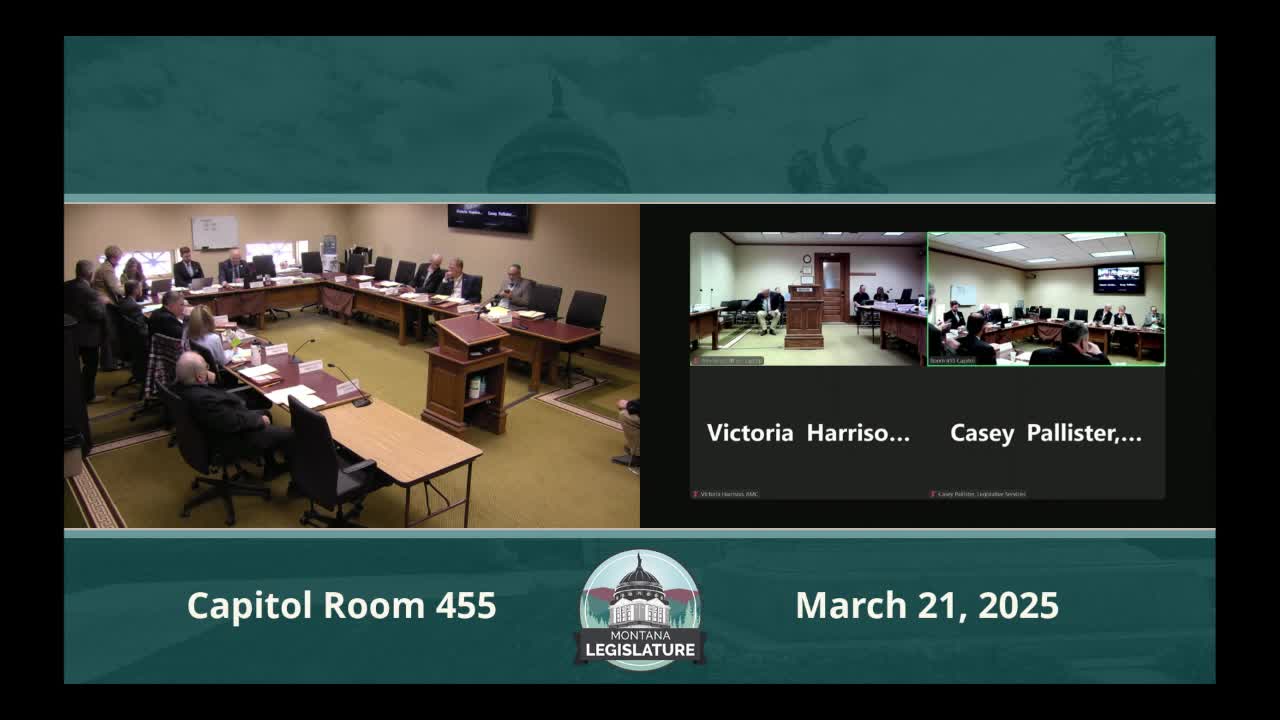Bill targets predatory towing, creates penalties and enforcement path for rotation complaints
Get AI-powered insights, summaries, and transcripts
Subscribe
Summary
Senate Bill 455 would prohibit roadside solicitation and add penalties for tow companies or first responders who 'rack chase' or otherwise take rotation calls; industry witnesses and tow operators supported the bill and the Highway Patrol described enforcement mechanics and small-ticket fines intended to give troopers enforcement options.
Senator Barry Usher, sponsor of Senate Bill 455, told the House Transportation Committee the bill is meant to preserve the fairness of Montana’s tow-rotation system and curb a rise in predatory towing in which tow companies "patrol" highways and take calls before the company on rotation can respond.
The bill would prohibit roadside solicitation, require tow companies responding to rotation calls to carry specified dispatch information, create small civil penalties for violations, and refer complaints about the rotation system to the existing complaint-resolution committee within the Department of Justice.
Scott Wolff, president of the Montana Tow Truck Association and owner of Iron Horse Towing, testified in support and described situations in which chasing tow operators used scanner information to reach crash scenes first, secure the motorist and the vehicle, and leave the tow company called by law enforcement with unrecoverable costs. "It gets expensive when you push these big trucks up and down the road," Wolff said, describing his own case where another operator took a rotation call he had been dispatched to and he spent thousands pursuing the loss.
Multiple local tow operators and business owners testified as proponents, including Chloe Selke and Amy English, who described customer distress when multiple tow companies contest a scene and cited safety and harassment concerns. Brad Longcake described how the rotation system dispatches by list and said the complaint-resolution committee (a Department of Justice function) is the existing avenue for disputes; the bill formalizes penalties and a written-information requirement to aid enforcement.
Committee members asked about enforcement mechanics, whether dispatch provides a unique call or service number, and how the bill would affect motorists’ choice. Witnesses and sponsors emphasized that the customer retains the right to choose their tow company, but law enforcement-dispatched rotation calls should be honored to protect small operators who must travel long distances and keep emergency response predictable. Scott Wolff explained fines were set low intentionally so highway troopers would be willing to issue tickets in the field: "They're more apt to write the $85 ticket." He also said progressive enforcement and removal from rotation for repeat offenders was part of the design.
Witnesses said the bill is not intended to stop good Samaritans from helping motorists or to prevent law enforcement from calling any tow company they deem appropriate when response time or scene safety requires it. The bill also asks tow companies to carry dispatch information (a call-for-service number or equivalent) that troopers could use for on-scene verification and enforcement.
Senator Usher asked the committee for a green (do-pass) recommendation; the committee closed the hearing on Senate Bill 455 without recording a committee vote. No opponents testified in person or online during the hearing.
